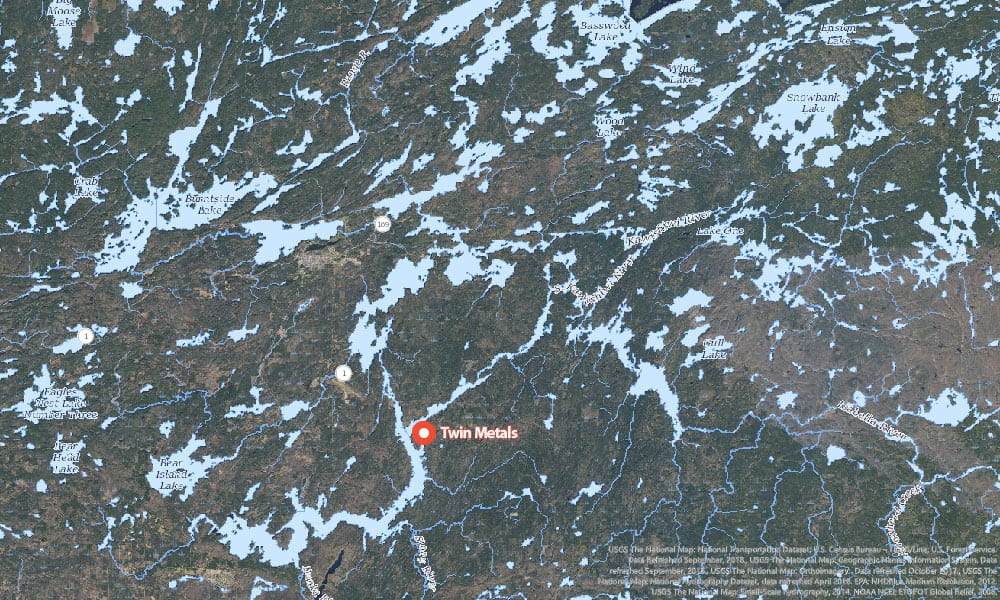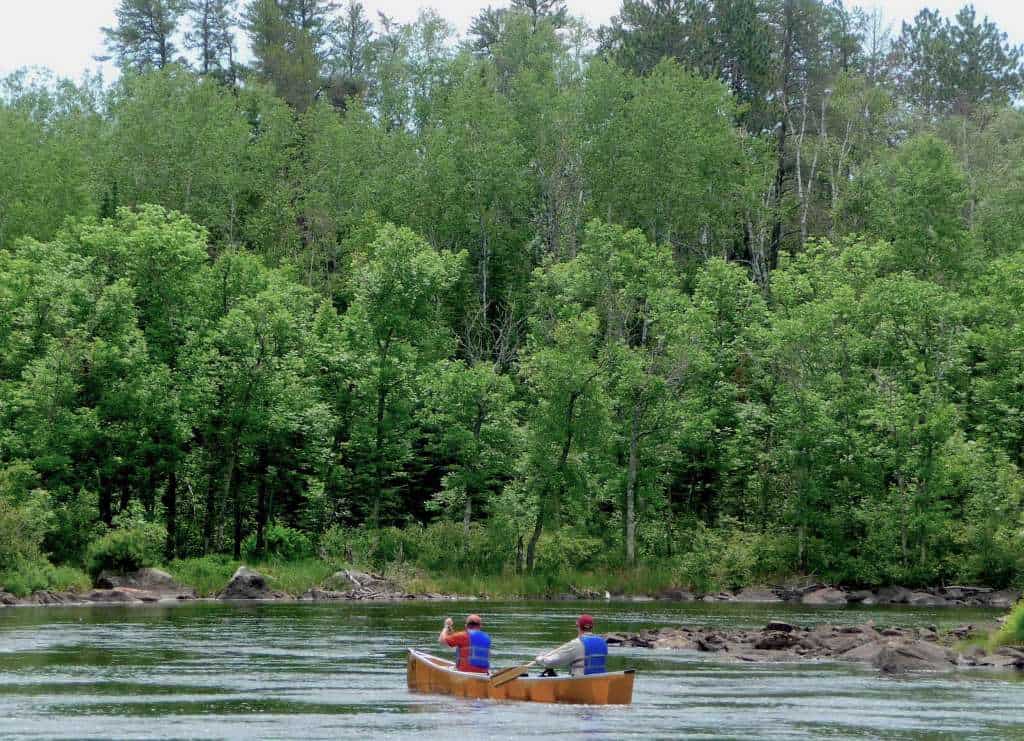
A judge in Washington D.C. yesterday dismissed a lawsuit brought by wilderness-based businesses and environmental groups challenging the reinstatement of leases held by Twin Metals to extract publicly-owned minerals. The leases date back to the 1960s, and renewal was rejected by the Obama administration in 2016.
Last year, the Trump administration reversed that decision and renewed the leases, bringing about the lawsuit.
“We’re very gratified that this decision – a summary judgment – validates our contention that the decision to cancel leases held in good standing for more than 50 years was arbitrary and wrong,” said Kelly Osborne, Twin Metals CEO. “Companies must be able to trust the regulatory process in order to risk the enormous capital required to extract metals such as copper, nickel, cobalt and platinum group metals that are vital to creation of the green economy our world so desperately needs.”
Federal judge Trevor McFadden, appointed to the bench in 2017 by President Trump, ruled that the Department of Interior has broad authority to reconsider decisions. The plaintiffs had argued such reversals are limited to correcting errors and mistakes, not matters of policy.
The primary issue was whether the Bureau of Land Management had the power to reject lease renewal, or if Twin Metals had a right to automatic renewal.
“Here, Interior timely corrected an error that would have deprived Twin Metals of its right to valuable leases. Its analysis explaining the need to correct this error was thorough, thoughtful, and reasonable—a far cry from ‘arbitrary and capricious,'” McFadden wrote in his ruling.
The leases were first issued to another company in 1966 and passed down to subsequent mining companies through acquisitions. The court ruled that the government has the power to reinstate the leases, and that Twin Metals had the right to a renewal.
The plaintiffs say the Obama administration was well within its right to cancel the leases when they came up for renewal again. They argued that the original leases were intended to encourage mining within a relatively short time frame, and the decades of renewals were inappropriate.
If the Trump administration reversal had been overruled, and the renewal rejection upheld, it would have made it almost impossible for Twin Metals to continue developing its proposed underground mine. The operation would be located about 10 miles southeast of Ely at the edge of the Boundary Waters on Birch Lake and the South Kawishiwi River.

Wilderness advocates pledged to keep fighting on the issue, saying the ruling ignored science, law, and the will of Americans.
“This decision failed to recognize the clear, plain language of the leases and twisted itself into knots to justify the predetermined policy decision of the Trump Administration to sell out America’s most popular Wilderness to a Chilean billionaire who also happens to be the landlord of Ivanka Trump,” said Campaign to Save the Boundary Waters Executive Director Tom Landwehr. “We intend to appeal this misguided ruling.”
There are still other challenges to Twin Metals. Congress has previously sought to force the U.S. Forest Service to release the results of a cancelled study on the risks of mining in the wilderness watershed, and now the Minnesota Department of Natural Resources has requested the report as well.
Rep. Betty McCollum has meanwhile introduced legislation that would prohibit mining on 234,000 acres of federal lands in the Superior National Forest that drain toward the Boundary Waters.
The Friends of the Boundary Waters Wilderness have announced it is supporting state legislation that would require “Prove-it-First” standards. Before receiving state permits, mining companies would be required to show a similar mine elsewhere that has operated for 10 years without polluting.

